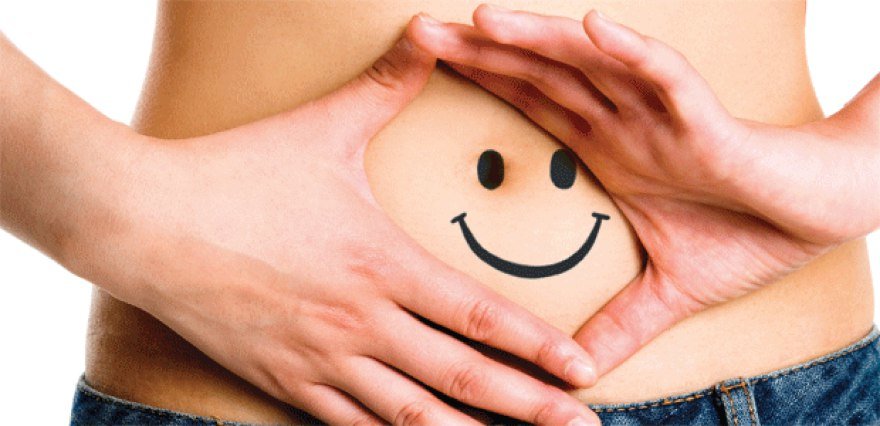
How To Take Care Of Your Digestive System

Digestion is the process of digesting food. Through a series of chemical reactions, the body breaks food down into smaller particles to aid the absorption of nutrients into the bloodstream. The complete process of digestion takes 24 to 72 hours. The exact time is dependent on several factors, including the presence of digestive issues and the type of food eaten. This article will look at the digestive process as a whole, potential digestive problems, and ways you can improve digestion. We’ll discuss the following:
[otw_shortcode_unordered_list items=”5″ style=”with-icon list-style-7″ item_1_name=”How long does it take to digest food?” item_2_name=”How digestion works” item_3_name=”Possible digestive problems” item_4_name=”When to see a doctor” item_5_name=”How to improve digestion”][/otw_shortcode_unordered_list]
Before diving in, let’s take a quick look at some facts about digestion:
[otw_shortcode_unordered_list items=”4″ style=”with-icon list-style-7″ item_1_name=”Digestion begins when food enters the mouth.” item_2_name=”The body normally digests food within 24 to 72 hours.” item_3_name=”The food is mixed with acid once in the stomach.” item_4_name=”Once in the small intestine, the food remnants are exposed to digestive juices, bile, and enzymes from the pancreas and liver.”][/otw_shortcode_unordered_list]
How long does it take to digest food?
Food typically passes through the stomach and small intestine over the course of 6 to 8 hours before making its way through the large intestine, or colon. However, the exact time of digestion depends on variables such as:
[otw_shortcode_unordered_list items=”3″ style=”with-icon list-style-7″ item_1_name=”Gender: A 1980s study revealed that the transit time through the large intestine alone was 47 and 33 hours for women and men respectively.” item_2_name=”Amount and type of food eaten: Fatty foods and protein-rich foods, such as meat and fish, can take longer to digest than high-fiber foods such as fruits and vegetables. Sweets, such as candy, crackers, and pastries, are digested by the body faster than any other type of food.” item_3_name=”The presence of digestive issues: Diverticulitis, irritable bowel syndrome, and Crohn’s disease are among the conditions that can slow down the digestive process.”][/otw_shortcode_unordered_list]
How does digestion work?
It’s believed that digestion only takes place in the stomach. Unfortunately, this belief is incorrect, as there are three separate stages of digestion:
[otw_shortcode_unordered_list items=”3″ style=”with-icon list-style-7″ item_1_name=”The oral stage of digestion” item_2_name=”The gastric stage of digestion” item_3_name=”The intestinal stage of digestion”][/otw_shortcode_unordered_list]
Oral stage of digestion
By chewing food, you break it down into smaller particles and mix these particles with saliva in the process. Amylase, an enzyme present in saliva, acts on carbohydrates in the food to break them down. The food particles then form a soft mass (known as a bolus) that is easy to swallow.
Gastric stage of digestion
An enzyme in the stomach called pepsin breaks down proteins into smaller particles. Stomach acid also plays a vital role in the prevention of food-borne illness by killing any viruses or bacteria that the food possesses.
Intestinal stage of digestion
Water and nutrients extracted from the digested food pass through the walls of the small intestine, entering the bloodstream and traveling to various areas of the body where they are needed for repair and building purposes. The remaining unabsorbed and undigested food then moves to the large intestine. In the large intestine or colon, more water and nutrients are absorbed. The components of food that remain unabsorbed or undigested are stored in the rectum until they leave the body via a bowel movement.
Possible digestive problems
Various possible digestive problems include:
[otw_shortcode_unordered_list items=”7″ style=”with-icon list-style-7″ item_1_name=”Inflammatory Bowel Disease (IBD)” item_2_name=”Lactose intolerance” item_3_name=”Gastroesophageal reflux disease (GERD)” item_4_name=”Diverticulosis” item_5_name=”Celiac disease” item_6_name=”Irritable bowel syndrome (IBS)” item_7_name=”Eosinophilic Esophagitis (EoE)”][/otw_shortcode_unordered_list]
These conditions are responsible for digestive issues and contribute to symptoms such as heartburn, diarrhea, constipation, and bloating.
Tips to improve digestion
To enjoy a healthy and effective digestive system and prevent complications like diarrhea and constipation, try the following:
Eat a balanced diet
Foods rich in fiber, such as fruits, whole grains, legumes, and vegetables, help move food through the digestive system more rapidly. They also aid weight loss, prevent constipation, and feed gut bacteria. Meat, particularly red meat, should only be eaten occasionally, as it is hard to digest. Processed and fast foods are often loaded with sugar, which may upset the balance of bacteria in the gut. They are also high in fat, making them difficult to digest, and contain additives that can contribute to poor health, causing complications like stomach upset in some people.
Stay hydrated

Hydration is often taken for granted, as most people don’t know that drinking enough water can aid the digestive process, preventing constipation and keeping food moving through the body.
Take probiotics
Probiotics are beneficial bacteria that reduce the growth of harmful bacteria in the gut, restoring the balance of bacteria in the body. The following foods are rich in probiotics:
[otw_shortcode_unordered_list items=”4″ style=”with-icon list-style-7″ item_1_name=”natural yogurt” item_2_name=”fermented vegetables” item_3_name=”kefir” item_4_name=”kimchi”][/otw_shortcode_unordered_list]
Probiotics are also available in supplement form.
Regular physical activity
Daily exercise benefits the body as a whole, and the digestive tract is no exception. A slow walk after a meal may help reduce bloating and gas, as well as prevent constipation.
Stress management
Being stressed can hamper digestion and contribute to symptoms such as cramping, bloating, and heartburn. To reduce stress levels, try to participate in stress-relieving exercises such as meditation and yoga. Taking a few deep breaths before you eat can help more than you think. Unsurprisingly, getting enough sleep every night can also reduce stress and aid digestion.
Dental hygiene

The digestive process starts in the mouth, which means dental problems can interfere with this process. Older adults, in particular, are more likely to be affected by improper chewing techniques caused by tooth problems. To prevent this, brush and floss your teeth daily and visit your dentist regularly.
Digestive enzymes
There are people with low stomach acid levels, digestive diseases, chronic stress, and other conditions. These people may benefit from taking supplements containing digestive enzymes. Although these can easily be found in most health stores, discuss enzyme supplementation with your doctor first.
Regular physical activity
Daily exercise benefits the body as a whole, the digestive tract included. A slow walk after a meal can reduce bloating and gas and prevent constipation.
When to see a doctor

Individuals who normally experience indications of poor digestion such as gas, heartburn, diarrhea, constipation, or bloating should see a qualified doctor to determine the degree of their condition. Symptoms that change abruptly or get progressively worse require medical attention.
Any individual who experiences any of the following symptoms should see a doctor immediately:
[otw_shortcode_unordered_list items=”5″ style=”with-icon list-style-7″ item_1_name=”Fever” item_2_name=”Rectal bleeding” item_3_name=”Persistent vomiting” item_4_name=”Significant weight loss” item_5_name=”Food blockage in the esophagus”][/otw_shortcode_unordered_list]
Summary
The time it takes to digest food is between 24 and 72 hours, depending on several factors. To keep your digestion healthy, engage in regular exercise, eat a high-fiber diet, reduce stress, and manage any present digestive conditions. It is important to see a doctor if symptoms of digestive problems are persistent, severe, or change over time.
More in Health & Well-Being
-
`
Managing Emotions during the COVID-19 Struggle
The stress of modern-day life has given birth to fluctuating feelings in most of us. So many factors influence our behavior...
February 9, 2026 -
`
Infamous Hollywood Diets – A List Of Celebrities’ Weird Diet Programs
The word ‘diet’ has become relatively popular among fitness trainers and trainees, and the better part of the world. The word...
February 9, 2026 -
`
Simon Cowell Broke His Back After Suffering From This Bad Accident in His Home in Malibu
Got talent in riding bikes? Simon Cowell doesn’t seem to have it after he fell from one and broke his back...
February 9, 2026 -
`
What Is Body Neutrality and How to Embrace It?
Most people, especially women, get too conscious about their bodies. We’re wired to think we should “look good” to get accepted...
February 9, 2026 -
`
Check Out the Most Expensive Food to Eat This Holiday Season!
Now that the Holiday Season is fast approaching, everyone is busy checking their list of gifts to buy for loved ones...
February 8, 2026 -
`
Follow these Skincare Tips to Soothe Your Dry Skin This Winter Season!
Most people dread the Winter Season due to the cold, dry, and frosty weather it brings. It interferes with our routine...
February 8, 2026 -
`
Experts Give these Effective Meditation Tips for First Timers!
One of the most efficient methods of harnessing your mental health is through meditation. We’ve heard the astounding benefits you get...
February 8, 2026 -
`
Top Foods that aid in Trimming Belly Fat
Burning the jiggly bits lying in the most stubborn part of the belly is a tedious task. Every one of us...
February 8, 2026 -
`
Experts Reveal The Secret to Dealing with and Overcoming Your Anxiety
Most people feel and deal with anxiety at some point in their lives. Maybe they’re bothered about how they perform in...
February 8, 2026















You must be logged in to post a comment Login